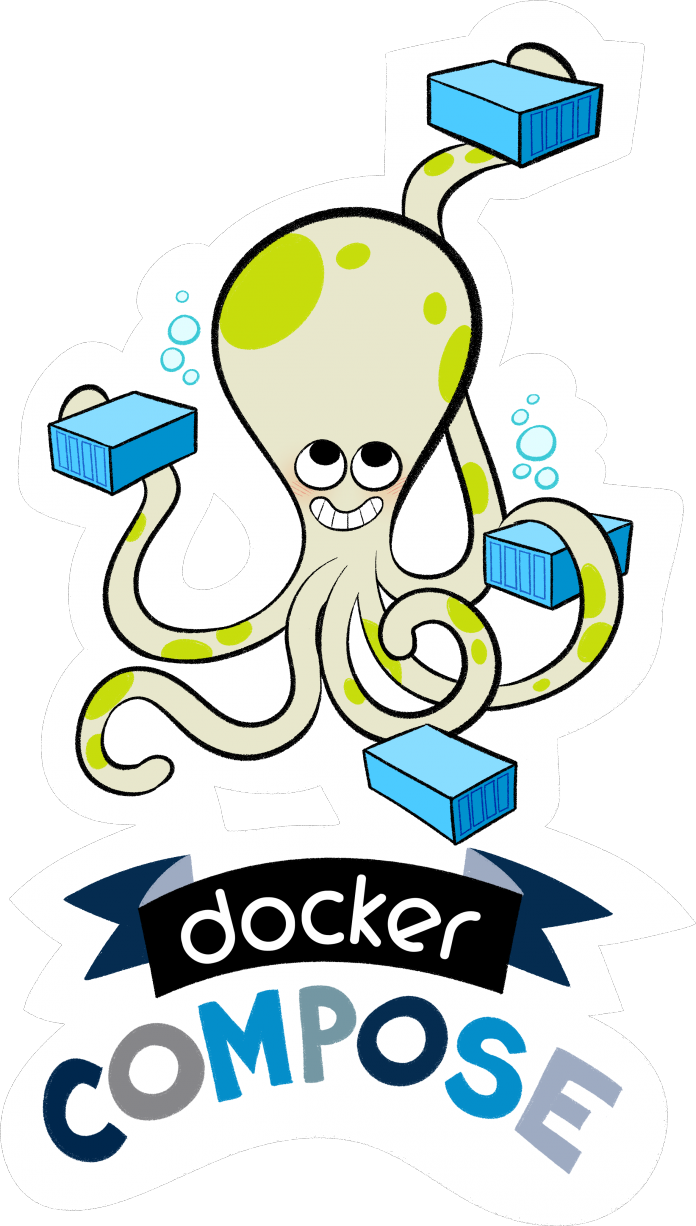6.2 KiB
translating by locez Container: Docker Compose on Ubuntu 16.04
What is Docker Compose
Docker Compose is a tool for running multi-container Docker applications. To configure an application’s services with Compose we use a configuration file, and then, executing a single command, it is possible to create and start all the services specified in the configuration.
Docker Compose is useful for many different projects like:
-
Development: with the Compose command line tools we create (and interact with) an isolated environment which will host the application being developed. By using the Compose file, developers document and configure all of the application’s service dependencies.
-
Automated testing: this use case requires an environment for running tests in. Compose provides a convenient way to manage isolated testing environments for a test suite. The full environment is defined in the Compose file.
Docker Compose was made on the Fig source code, a community project now unused.
In this tutorial we will see how to install Docker Compose on an Ubuntu 16.04 machine.
Install Docker
We need Docker in order to install Docker Compose. First, add the public key for the official Docker repository:
$ curl -fsSL https://download.docker.com/linux/ubuntu/gpg | sudo apt-key add-
Next, add the Docker repository to apt sources list:
$ sudo add-apt-repository "deb [arch=amd64] https://download.docker.com/linux/ubuntu $(lsb_release -cs) stable"
Update the packages database and install Docker with apt:
$ sudo apt-get update
$ sudo apt install docker-ce
At the end of the installation process, the Docker daemon should be started and enabled to load at boot time. We can check its status with the following command:
$ sudo systemctl status docker
---------------------------------
● docker.service - Docker Application Container Engine
Loaded: loaded (/lib/systemd/system/docker.service; enabled; vendor preset: enabled)
Active: active (running)
Install Docker Compose
At this point it is possible to install Docker Compose. Download the current release by executing the following command:
# curl -L https://github.com/docker/compose/releases/download/1.14.0/docker-compose-`uname -s`-`uname -m` > /usr/local/bin/docker-compose
Make the downloaded binary executable:
# chmod +x /usr/local/bin/docker-compose
Check the Docker Compose version:
$ docker-compose -v
The output should be something like this:
docker-compose version 1.14.0, build c7bdf9e
Testing Docker Compose
The Docker Hub includes a Hello World image for demonstration purposes, illustrating the configuration required to run a container with Docker Compose.
Create a new directory and move into it:
$ mkdir hello-world
$ cd hello-world
Create a new YAML file:
$ $EDITOR docker-compose.yml
In this file paste the following content:
unixmen-compose-test:
image: hello-world
Note: the first line is used as part of the container name.
Save and exit.
Run the container
Next, execute the following command in the hello-world directory:
$ sudo docker-compose up
If everything is correct, this should be the output shown by Compose:
Pulling unixmen-compose-test (hello-world:latest)...
latest: Pulling from library/hello-world
b04784fba78d: Pull complete
Digest: sha256:f3b3b28a45160805bb16542c9531888519430e9e6d6ffc09d72261b0d26ff74f
Status: Downloaded newer image for hello-world:latest
Creating helloworld_unixmen-compose-test_1 ...
Creating helloworld_unixmen-compose-test_1 ... done
Attaching to helloworld_unixmen-compose-test_1
unixmen-compose-test_1 |
unixmen-compose-test_1 | Hello from Docker!
unixmen-compose-test_1 | This message shows that your installation appears to be working correctly.
unixmen-compose-test_1 |
unixmen-compose-test_1 | To generate this message, Docker took the following steps:
unixmen-compose-test_1 | 1\. The Docker client contacted the Docker daemon.
unixmen-compose-test_1 | 2\. The Docker daemon pulled the "hello-world" image from the Docker Hub.
unixmen-compose-test_1 | 3\. The Docker daemon created a new container from that image which runs the
unixmen-compose-test_1 | executable that produces the output you are currently reading.
unixmen-compose-test_1 | 4\. The Docker daemon streamed that output to the Docker client, which sent it
unixmen-compose-test_1 | to your terminal.
unixmen-compose-test_1 |
unixmen-compose-test_1 | To try something more ambitious, you can run an Ubuntu container with:
unixmen-compose-test_1 | $ docker run -it ubuntu bash
unixmen-compose-test_1 |
unixmen-compose-test_1 | Share images, automate workflows, and more with a free Docker ID:
unixmen-compose-test_1 | https://cloud.docker.com/
unixmen-compose-test_1 |
unixmen-compose-test_1 | For more examples and ideas, visit:
unixmen-compose-test_1 | https://docs.docker.com/engine/userguide/
unixmen-compose-test_1 |
helloworld_unixmen-compose-test_1 exited with code 0
Docker containers only run as long as the command is active, so the container will stop when the test finishes running.
Conclusion
This concludes the tutorial about the installation of Docker Compose on an Ubuntu 16.04 machine. We have also seen how to create a simple project through the Compose file in YAML format.
via: https://www.unixmen.com/container-docker-compose-ubuntu-16-04/
作者: Giuseppe Molica 译者:译者ID 校对:校对者ID
